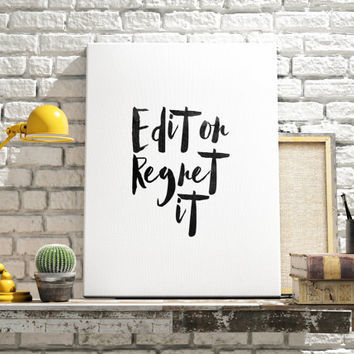How to Be Exceptionally Editable
By Naseem Hrab
When I first started writing children’s books, I possessed the strength and virility of a thousand strong and virile men. I believed in my ideas and held fast to them. While I was open to the editorial process in principle, I would get defensive when my editor queried my narrative choices. “What do they know?” I’d say to myself in a stage whisper under my breath using my inside voice as I silently screamed. Fast forward a mere four books later and I’m already tired.
So tired that I’ll consider every note my editor gives me the same way one might deliberate on a potential Tinder match during a pandemic, which is to say exhaustively. OR SO I HEAR. It’s not that I’m relying on my editor to fix all my manuscript’s problems, or that I lack vision—not in the least. In fact, I am more committed to ensuring my vision is meaningful and clear, and I work harder on my writing than ever. To be honest, it’s just that I’m tired of being defensive. I’ve finally realized that don’t think I have anything to lose from listening to thoughtful feedback. I’m trying to be exceptionally editable.
And in an attempt to help you become exceptionally editable without becoming exceptionally exhausted, here are my top tips for getting there:
Your CanLit News
Subscribe to Open Book’s newsletter to get local book events, literary content, writing tips, and more in your inbox
- Work even harder: Don’t send half-baked stories into the ether. Make sure you’ve made your manuscript as strong as you can before you submit it.
- Trust your editor: If an editor is willing to work on your manuscript with you before bringing it forward for publication, or has gone so far as to acquire your manuscript, they’ll likely already believe in your story and like your writing. So, just trust that your editor wants to make an incredible book with you. They know what they’re doing.
- Your manuscript is not problem-free: If you think your manuscript is brilliant out of the gate, I assure you that you are very wrong. And it’s okay to be not brilliant AND very wrong. In fact, I love that you and I share the same hobbies.
- Be a willing problem solver: Your editor wants to work with you to identify and solve the problems in your manuscript. I bet that your own mother wouldn’t even do that for you.
- A closed mouth catches no flies: It’s unlikely that you can listen to feedback and defend your work at the same time. Concentrate on listening and chewing. I’ve said it before and I’ll say it again: Always bring your editor some cake. Hopefully, they’ll share.
- 3.1415926535: There are infinite ways of telling a story and there are infinite ways that your story can be told. Maybe your editor will help you find an even better way to tell your story.
- You don’t know what you don’t know: You 100% have blind spots about your manuscript. Your editor can ensure you see them, too, if you let them.
- Perspective: Your editor will help you understand how your potential audience could interpret your manuscript. And pick it apart. Let’s catch those things before the reviewers do, eh?
- Don’t be so serious: Treat the editing process like it’s fun! As fun as a sugar-free lollipop after a visit to the dentist. I know, I know—that’s too much fun! Maybe it’s as fun as sharing ideas and cake with a friend.
- Be curious: Ask your editor thoughtful questions and make sure you understand their feedback. Get to the heart of their concerns and suggestions. This clarity will make the revision process that much easier when you’re back at your computer and all alone. Good thing you had the foresight to buy two cakes.
- Always be summarizing: Before you wrap up a conversation with your editor, make sure you’re on the same page about what you both think the biggest issues with your manuscript are. Prioritize accordingly.
- It’s not all bad: Also, make sure you ask your editor what their favourite parts of your writing and story are. Try to get better at what you’re good at.
- Strike the word “rewrite” from your vocabulary: When working on a new draft, don’t say you’re rewriting it. That sound tedious. No one wants to do that. You’re reimagining your story.
- Think of your own solutions: Sometimes editors explicitly suggest how you might fix a line. Push yourself to try to come up with your own solutions. It’s a good exercise in originality.
- No person is an island: Be open to being an even better writer and to the advice of anyone who is caring enough and talented enough to help you get there.
The views expressed by Open Book columnists are those held by the authors and do not necessarily reflect the views of Open Book.
Naseem Hrab is the author of the picture books Ira Crumb Makes a Pretty Good Friend and Ira Crumb Feels the Feelings, illustrated by Josh Holinaty. Her comedy writing has appeared on McSweeney's Internet Tendency and The Rumpus. Sometimes Naseem likes to get up on a stage and tell true stories. She loves improv and coffee ice cream.
She worked as a librarian for a time and currently works in children's publishing.




